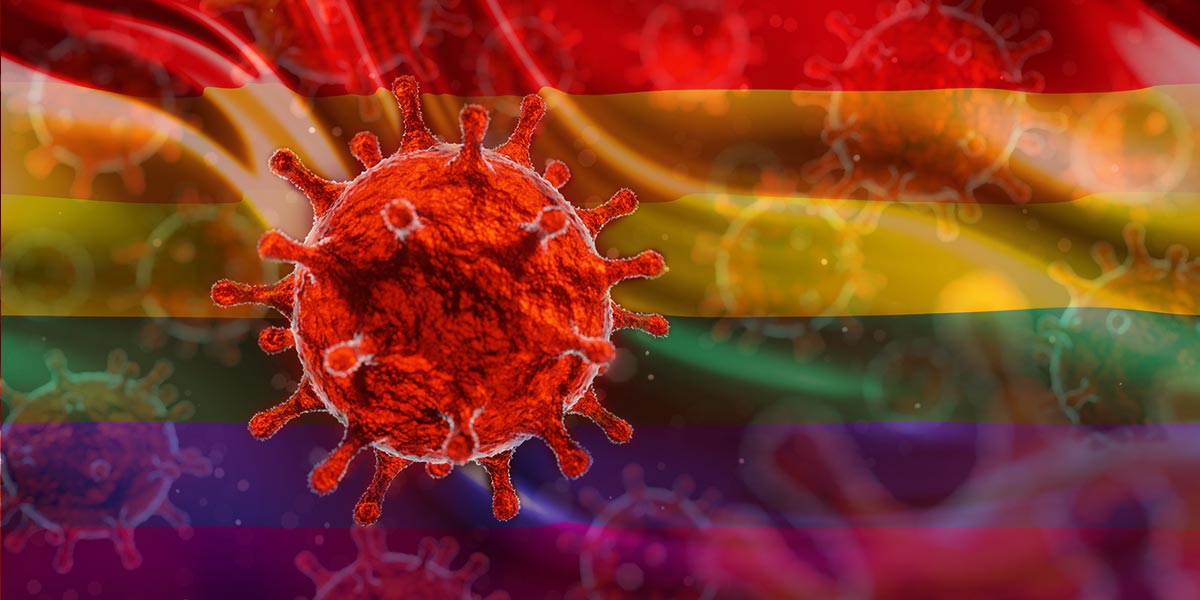Covid-19 | SA accused of excluding LGBT refugees & asylum seekers

Human Rights Watch has accused the South African government of overlooking refugees and asylum seekers in its Covid-19 aid programmes. These include many LGBT people who fled to South Africa to escape persecution.
“The Ramaphosa administration should either ensure access to food for thousands of refugees and asylum seekers, or say that it can’t meet the need and seek donors to step in and provide assistance,” said Dewa Mavhinga, southern Africa director at Human Rights Watch. “The government is ignoring the plight of refugees and asylum seekers currently confined in their homes and unable to work to provide for themselves.”
South Africa is a common destination for LGBT people fleeing their home countries due to persecution on the basis of their sexual orientation, gender identity, or expression. The Refugees Amendment Act of 2008 expressly includes persecution on the basis of sexual orientation as a ground for seeking asylum in South Africa.
Victor Chikalogwe, director of the LGBT refugee advocacy group People Against Suffering, Suppression, Oppression, and Poverty (PASSOP), has said that the lockdown has made life incredibly difficult for many undocumented LGBT migrants, refugees, and asylum seekers, as they are unable to work in the informal trades that have sustained them, including restaurants, bars, or sex work. They are not eligible to receive government social grants or food parcels, which are distributed only to those with South African identity cards and Social Security cards.
Thomars Shamuyarira, a transgender man from Zimbabwe who is the director of The Fruit Basket, a Johannesburg-based group that provides support to African LGBT migrants, said that the Covid-19 lockdown measures have had a severe impact on LGBT refugees and asylum seekers who do not have access to informal employment, food, medicine, and accommodation.
Human Rights Watch spoke with a gay man from the Democratic Republic of Congo who fled to South Africa following a targeted attack on the basis of his sexual orientation by an armed group in South Kivu. He said he has tried unsuccessfully since 2014 to get refugee status and that the lockdown makes it even more difficult for him to survive from one day to the next.
A gay man who fled Zimbabwe in 2014 after his family members threatened to kill him when they discovered his sexual orientation said that he has been unable to do sex work due to the lockdown, therefore unable to pay rent or buy food.
On March 24, The African Commission on Human and Peoples’ Rights expressed concern about the vulnerability of refugees and asylum seekers under Covid-19 regulations and addressed a letter to South African President Cyril Ramaphosa, who currently serves as African Union Chairperson, urging the South African government to adequately address human rights issues in its responses to Covid-19. This should include ensuring that undocumented refugees and asylum seekers in South Africa have access to basic services.
The South African authorities should ensure that essential goods and services are provided to everyone in need without discrimination, Human Rights Watch said. Special arrangements should be made to protect the rights of vulnerable groups, including refugees, asylum seekers, and the homeless, who may not normally have access to basic goods, including food, water – potable and washing – and health care.
Thirty-three out of the 70 countries that criminalise adult consensual same-sex conduct are in Africa. Across the continent, discriminatory laws and hostile social attitudes lead many LGBT people to flee their countries of origin – including many from Zimbabwe, Democratic Republic of Congo, Malawi, and Nigeria – and travel to South Africa, often against considerable odds, to seek asylum and a better life.
“South Africa should make special efforts to protect the most vulnerable in the country and ensure that refugees and asylum seekers are not overlooked or forgotten,” Mavhinga said. “The authorities should act and seek donor support to avert an imminent humanitarian catastrophe.”
Leave a Reply